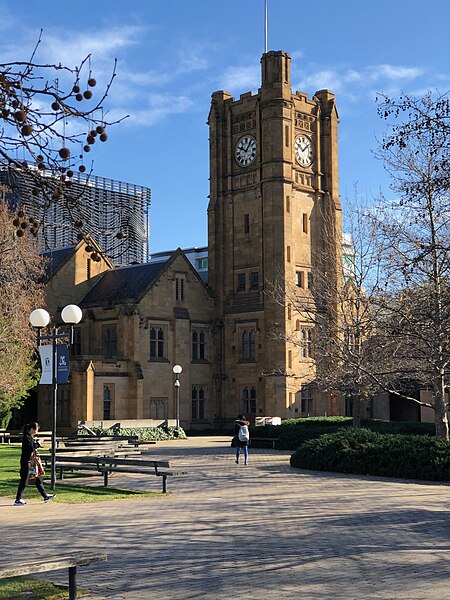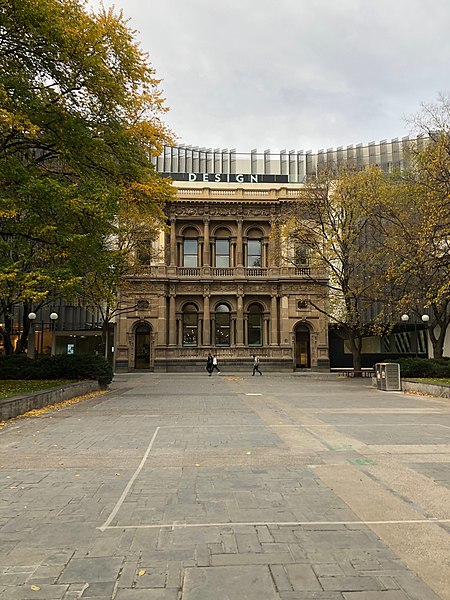
Thammasat University students interested in ASEAN studies, education, development studies, political science, Indonesia, Philippines, Myanmar and related subjects may find it useful to participate in a free 9 August Zoom webinar on Making Southeast Asia’s education systems work.
The event, on Wednesday, 9 August 2023 at 3pm Bangkok time, is presented by the Asia Institute at the University of Melbourne, Australia.
The TU Library collection includes several books about different aspects of education in Association of Southeast Asian Nations (ASEAN) countries.
Students are invited to register at this link.
The event webpage explains:
This webinar will involve presentations by three analysts with expertise on the politics of education in Southeast Asia. These are: Andrew Rosser, Professor of Southeast Asian Studies at the Asia Institute; Dr Kidjie Saguin, an Assistant Professor at the University of Amsterdam; and Dr Khaing Phyu Htut, an education advisor to the UK’s Foreign, Commonwealth and Development Office in Myanmar. Rosser and Saguin have published extensively on the politics of education reform in Indonesia and the Philippines respectively while Htut has extensive experience working in Myanmar’s education sector as an academic, consultant and advisor.
The three countries on which these individuals work – Indonesia, Philippines and Myanmar – have all made significant strides in improving access to education in recent decades but made little if any progress in improving learning outcomes.
The webinar will seek to understand why this is the case, going beyond consideration of immediate causes (underfunding, perverse incentive structures, low administrative capacity, etc.) to consider the political obstacles to improved education quality. It will also consider ways in which the obstacles to improved learning might be overcome and the implications for international and domestic actors concerned about improving education within the region.
About the Speakers
- Andrew Rosser is the Director of Asia Institute and Professor of Southeast Asian Studies at The University of Melbourne.
- Khaing Phyu Htut is an education specialist with more than 20 years of professional experience in Myanmar education sectors: state, private, international NGOs, ethnic and monastic. She is currently the Education Adviser for the UK’s FCDO (Foreign Commonwealth and Development Office), the British Embassy, Myanmar. She is participating in this webinar as a research fellow of ANU/UM (Australia National University and University of Melbourne).
- Kidjie Saguin is an Assistant Professor in Public Policy and Governance at the University of Amsterdam, the Netherlands. His broad research interest is comparative public policy with a substantive focus on social policy in developing countries. More recently, his research has been concerned about why the Philippines has achieved radical education policy reforms.
- Melissa Conley Tyler is an Honorary Fellow of the Asia Institute.

The official ASEAN website explains:
Education is a powerful transformative force in the lives of ASEAN peoples. Thus inclusive and quality education is key to the sustainable development of the region. Quality education leads to better health outcomes, higher social capital, peaceful and gender-equal societies, and decent work opportunities. It prepares ASEAN’s human resources to be resilient, competitive and ready to face an ever-changing future. Aside from being a powerful driver of social and economic development, education has the potential to raise ASEAN awareness and foster a regional identity.
ASEAN supports global and regional commitments in education by promoting lifelong learning underpinned by the principles of equity, inclusion and quality. Specific priorities include advancing future-ready education at basic and higher education levels and technical and vocational education and training; ensuring inclusive education; building the capacity of education personnel; and mobilising resources for education through partnerships with various key stakeholders.
Highlights of ASEAN’s work in education include:
- Supports for students and learners transition to the workforce through internship opportunities, higher education scholarships and responsive skills development
- Supports for teachers and vocational trainers on the latest teaching methods and strategies
- Advocacy to reach out-of-school children and youth
- Advocacy for safe and resilient schools
As part of the current ASEAN Work Plan On Education 2021-2025, last year an ASEAN ROADMAP 2025 to realise a common higher education space in Southeast Asia was announced.
The objectives of the road map were described this way:
In developing a roadmap aimed at fully implementing initiatives towards an ASEAN Higher Education Space and the management of an ASEAN Branded Scholarship by 2025, the Roadmap will have the following objectives:
- Consolidate the vision and commitments set out in the Kuala Lumpur Declaration on Higher Education;
- Formulate and propose an ASEAN Declaration and Vision on the ASEAN Higher Education Space as a high-level commitment to the objectives of the Working Group;
- Determine key milestones in the design, development and implementation of the Working Group’s activities;
- Contribute to the underlying visions of ASEAN 2025 and a post-2025 agenda as well as the sustainability and resilience of an ASEAN Higher Education Space;
- Provide strategic guidance to the Senior Officials Meeting on Education (SOM-ED) on the implementation of the relevant activities ASEAN Work Plan on Education 2021 – 2025 in accordance with their respective mandates;
- Identify, agree, and implement the procedure, timeline, and capacity building required to transfer of ownership of assets and action lines from the SHARE Programme to the ASEAN nominated entity/entities, prior to the SHARE Programme’s conclusion at the end of 2022, to sustainably lead the initiative to 2025 and beyond;
- Identify, develop and implement continued Technical Assistance and Capacity Building
Activities required for the Working Group and ASEAN Member States
- Establish programme areas for the following components, within the implementation plan:
- The Digital Transformation of ASEAN Higher Education
- Virtual Exchange / Collaborative Online International Education (COIL)
- Digital Credentials / Digitalised Credit Transfer System
- Communities of Practice of ASEAN Higher Education Practitioners / Alumni
- Support for Cambodia, Lao PDR, Myanmar, and Vietnam on student mobility
- Graduate Employability in ASEAN
Key Principles of the Roadmap
In implementing the Roadmap aimed at realising an initiative towards an ASEAN Higher Education Space and the management of an ASEAN Branded Scholarship by 2025, the Working Group will observe the following key principles.
Measurable: Agreed targets to be achieved with clear timelines and key performance indicators to track progress;
Impactful: Programmes are mutually reinforcing and will be delivered in a coherent manner, focus on strategies and activities with most impact for the ASEAN higher education systems and students, supported by strong sustainability mechanisms at regional and national levels;
Participatory: Fostering voluntary collaboration amongst all stakeholders to support holistic approaches and outcomes; and acknowledging students/ learners, higher education practitioners, and stakeholders as partners and agents of their own learning and capacity development; and take due consideration the national regulations and different contexts of ASEAN Member States.
Complementary and Pragmatic: Ensuring the alignment of the eventual intra-ASEAN initiative with ASEAN mandates, commitments, and other initiatives including those of the SHARE Programme; the
Sustainable Development Goals (SDGs), especially Goal 4, as well as stakeholders’ interests;
Equitable, Diverse and Inclusive: Ensuring all target groups, genders are facilitated and supported to have equal access to development opportunities so as to promote equal opportunities for all in ASEAN higher education;
Sustainable: Ensuring that strong sustainability mechanisms (financial and human resources) are in place to implement programmes and inform developments in the region.

(All images courtesy of Wikimedia Commons)
